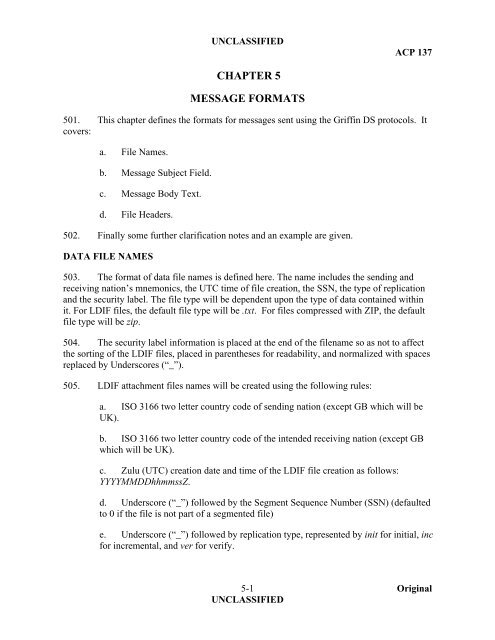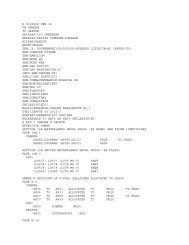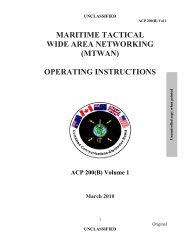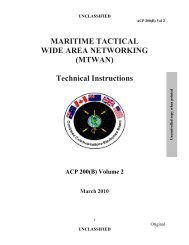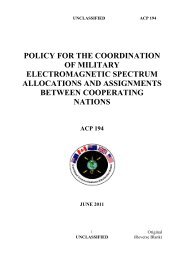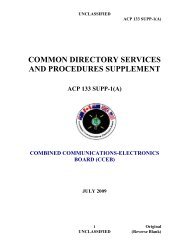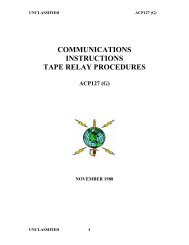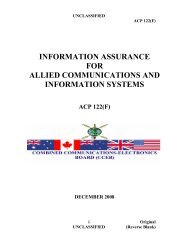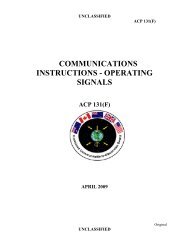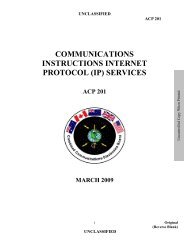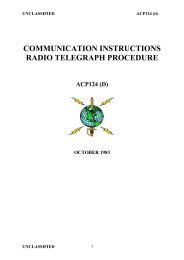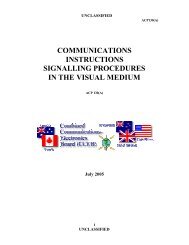ACP 137
ACP 137
ACP 137
Create successful ePaper yourself
Turn your PDF publications into a flip-book with our unique Google optimized e-Paper software.
UNCLASSIFIED<br />
<strong>ACP</strong> <strong>137</strong><br />
CHAPTER 5<br />
MESSAGE FORMATS<br />
501. This chapter defines the formats for messages sent using the Griffin DS protocols. It<br />
covers:<br />
a. File Names.<br />
b. Message Subject Field.<br />
c. Message Body Text.<br />
d. File Headers.<br />
502. Finally some further clarification notes and an example are given.<br />
DATA FILE NAMES<br />
503. The format of data file names is defined here. The name includes the sending and<br />
receiving nation’s mnemonics, the UTC time of file creation, the SSN, the type of replication<br />
and the security label. The file type will be dependent upon the type of data contained within<br />
it. For LDIF files, the default file type will be .txt. For files compressed with ZIP, the default<br />
file type will be zip.<br />
504. The security label information is placed at the end of the filename so as not to affect<br />
the sorting of the LDIF files, placed in parentheses for readability, and normalized with spaces<br />
replaced by Underscores (“_”).<br />
505. LDIF attachment files names will be created using the following rules:<br />
a. ISO 3166 two letter country code of sending nation (except GB which will be<br />
UK).<br />
b. ISO 3166 two letter country code of the intended receiving nation (except GB<br />
which will be UK).<br />
c. Zulu (UTC) creation date and time of the LDIF file creation as follows:<br />
YYYYMMDDhhmmssZ.<br />
d. Underscore (“_”) followed by the Segment Sequence Number (SSN) (defaulted<br />
to 0 if the file is not part of a segmented file)<br />
e. Underscore (“_”) followed by replication type, represented by init for initial, inc<br />
for incremental, and ver for verify.<br />
5-1<br />
UNCLASSIFIED<br />
Original


